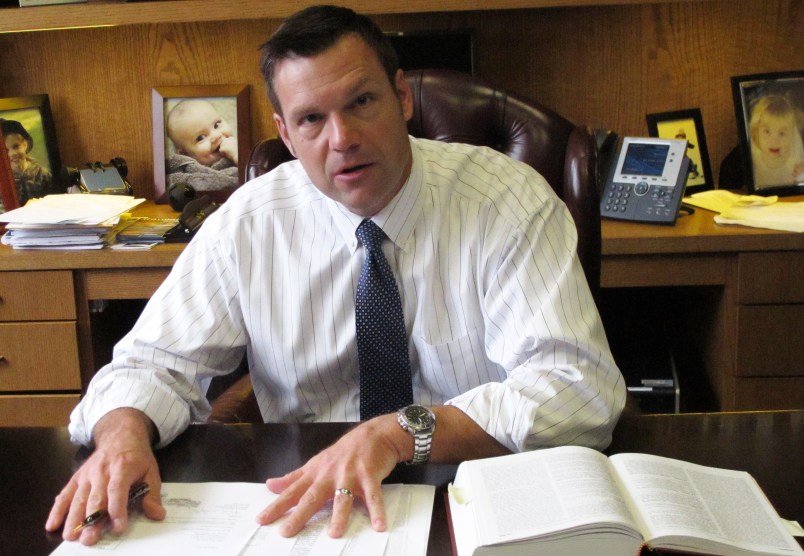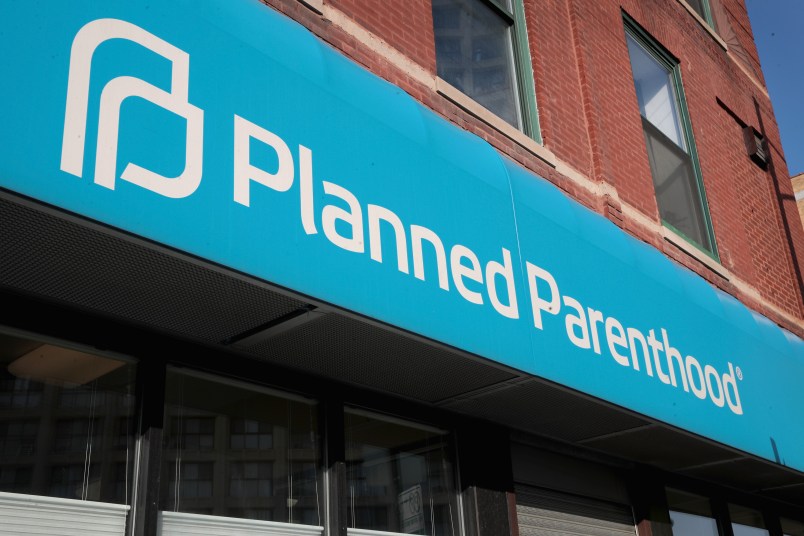On Wednesday, the chair of the White House’s bogus voter fraud panel Kris Kobach sent another request to states asking for publicly available voter registration records, a request the state of California has already shut down.
The latest request outlines a recent legal battle between the President’s Advisory Commission on Election Integrity and the Electronic Privacy Information Center, a group that filed a motion to keep the commission from receiving the voter data. The motion was denied on Monday, which prompted the most recent request.
“I appreciate the cooperation of chief election officials from more than 30 states who have already responded to the June 28 request and either agreed to provide these publicly available records, or are currently evaluating what specific records they may provide in accordance with their state laws,” Kobach said in one letter to California Secretary of State Alex Padilla. “Like you, I serve as the chief election official of my state. And like you, ensuring the privacy and security of any non-public voter information is a high priority.”
The commission’s first request for voter data, which asked for everything from voter addresses and political party affiliation to military status and the last four digits of social security numbers, was met with harsh pushback from nearly every state. Most states said they would either not provide the data or only share publicly available information.
In this letter, Kobach said he was only requesting public data, the kind that is “regularly provided to political candidates, journalists and other interested members of the public” and assured the secretaries of state that he would not publicly release any personally identifiable information and that records would be kept “confidential and secure.”
“Once the commission’s analysis is complete, the commission will dispose of the data as permitted by federal law. The only information that will be made public are statistical conclusions drawn from the data, other general observations that may be drawn from the data, and any correspondence that you may send to the commission in response to the narrative questions enumerated in the June 28 letter,” he said.
The letter also asked states to communicate with one of the commission’s staffers about securely submitting state data, a move the commission has made to “address issues raised in recent litigation” about the security of the data transfer portal.
“The Commission will approach all of its work without preconceived conclusions or prejudgments. The Members of this bipartisan Commission are interested in gathering facts and going where those facts lead,” he said.
But Padilla isn’t buying it. Releasing a statement rejecting the request Wednesday, Padilla called the commission a “sham” and said California wouldn’t be sharing any data.
His statement:
“Once again, the President’s sham election commission has requested California voters’ personal data. Once again, my response is no. The commission’s new request does nothing to address the fundamental problems with the commission’s illegitimate origins, questionable mission or the preconceived and harmful views on voting rights that many of its commissioners have advanced. Let me reassure voters: I will not provide this commission with Californians’ personal voter data. I will continue to do everything in my power to protect California citizens’ ability to exercise their rights to register and vote free of barriers and intimidation.”
Read Kobach’s letter to Padilla below:







